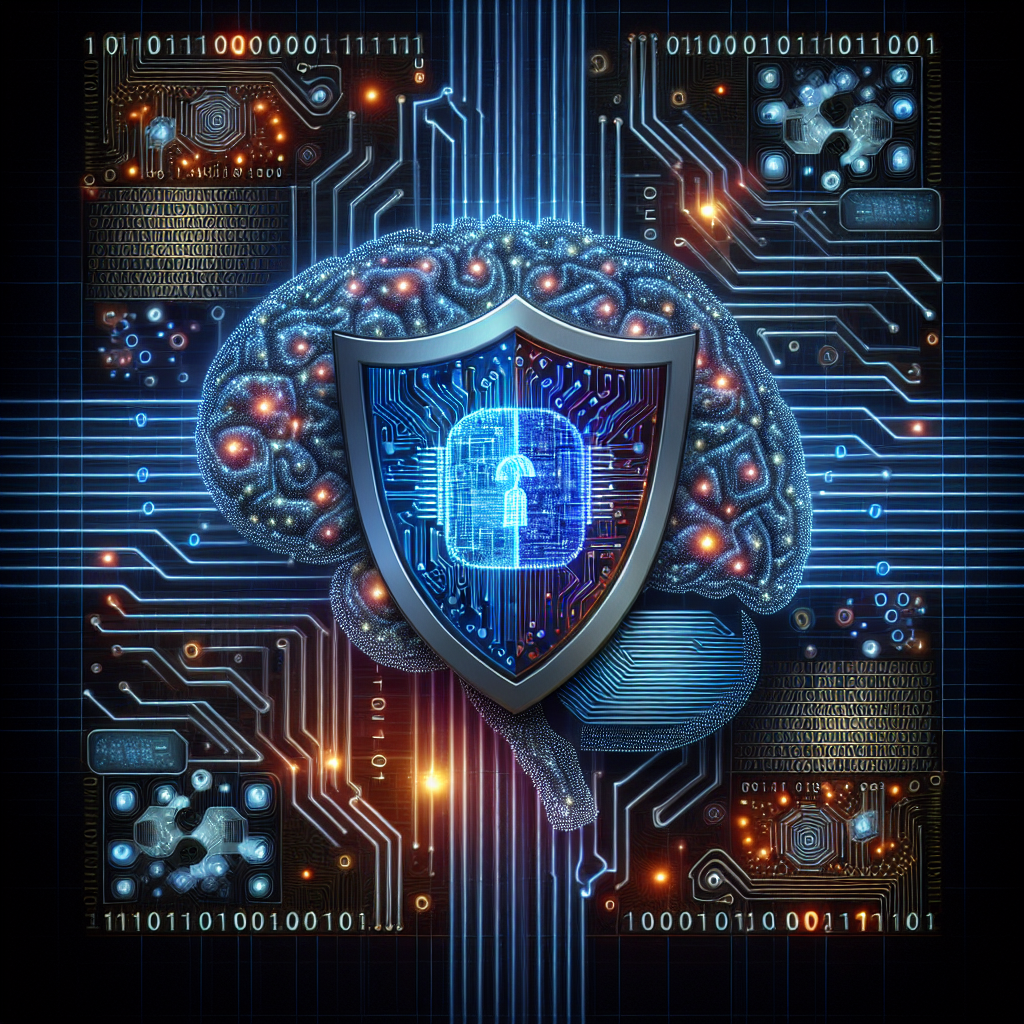Artificial Intelligence (AI) has emerged as a powerful tool in enhancing cybersecurity measures for businesses and organizations around the world. With the increasing number of cyber threats and attacks, AI software has become essential in detecting and preventing security breaches, as well as responding to incidents in real-time. This article will explore the role of AI in cybersecurity, its benefits, challenges, and the future of AI-powered security solutions.
The Role of AI in Cybersecurity
AI software plays a crucial role in cybersecurity by leveraging machine learning algorithms and data analytics to analyze and detect potential threats in real-time. These AI-powered solutions are able to detect patterns and anomalies in network traffic, identify malicious activities, and predict potential security breaches before they occur. This proactive approach to cybersecurity allows organizations to stay one step ahead of cybercriminals and protect their sensitive data and systems from attacks.
One of the key advantages of AI in cybersecurity is its ability to automate tasks that were previously performed manually by security analysts. AI software can continuously monitor network traffic, analyze data from multiple sources, and identify potential threats in a fraction of the time it would take a human analyst. This automation not only improves the efficiency of cybersecurity operations but also enables organizations to respond to incidents quickly and effectively.
AI software is also capable of learning from past incidents and adapting its algorithms to new threats and attack techniques. This adaptive learning capability allows AI-powered security solutions to constantly improve their detection capabilities and stay ahead of evolving cyber threats. By leveraging AI technologies, organizations can enhance their cybersecurity posture and minimize the risk of data breaches and cyber attacks.
Benefits of AI in Cybersecurity
There are several benefits of using AI software in cybersecurity, including:
1. Improved threat detection: AI-powered solutions are able to analyze vast amounts of data and detect potential security threats in real-time, enabling organizations to respond to incidents quickly and effectively.
2. Automation of security tasks: AI software can automate repetitive security tasks, such as monitoring network traffic and analyzing logs, freeing up security analysts to focus on more strategic initiatives.
3. Enhanced incident response: AI-powered security solutions can respond to security incidents in real-time, enabling organizations to mitigate the impact of cyber attacks and prevent data breaches.
4. Adaptive learning: AI software can learn from past incidents and adapt its algorithms to new threats, ensuring that organizations are prepared to defend against evolving cyber threats.
Challenges of AI in Cybersecurity
While AI software offers many benefits in enhancing cybersecurity, there are also challenges that organizations must consider when implementing AI-powered security solutions. Some of the key challenges include:
1. Data privacy concerns: AI software requires access to large amounts of data to train its algorithms, raising concerns about data privacy and compliance with regulations such as GDPR.
2. False positives: AI-powered solutions may generate false positive alerts, leading to unnecessary investigations and disruptions to business operations.
3. Lack of skilled personnel: Implementing AI in cybersecurity requires specialized skills and expertise, which may be lacking in some organizations.
4. Adversarial attacks: Cybercriminals can exploit vulnerabilities in AI algorithms to evade detection and launch sophisticated attacks on organizations.
Despite these challenges, the benefits of AI in cybersecurity far outweigh the risks, and organizations can take steps to mitigate these challenges by implementing robust security measures and training their personnel on best practices for AI-powered security solutions.
The Future of AI in Cybersecurity
The future of AI in cybersecurity is bright, with organizations increasingly adopting AI-powered security solutions to enhance their cybersecurity posture. As cyber threats continue to evolve and become more sophisticated, AI software will play a crucial role in detecting and preventing security breaches, as well as responding to incidents in real-time. With advancements in machine learning and data analytics, AI-powered security solutions will become more intelligent and adaptive, enabling organizations to stay ahead of cybercriminals and protect their sensitive data and systems from attacks.
In the coming years, we can expect to see AI software being integrated into a wide range of cybersecurity tools and technologies, including intrusion detection systems, endpoint security solutions, and threat intelligence platforms. AI-powered security solutions will also play a key role in securing emerging technologies such as the Internet of Things (IoT) and cloud computing, where traditional security measures may not be sufficient to protect against cyber threats.
FAQs
Q: How does AI software enhance cybersecurity?
A: AI software enhances cybersecurity by leveraging machine learning algorithms and data analytics to analyze and detect potential threats in real-time. These AI-powered solutions can automate security tasks, improve threat detection, enhance incident response, and adapt to evolving cyber threats.
Q: What are the benefits of using AI in cybersecurity?
A: The benefits of using AI in cybersecurity include improved threat detection, automation of security tasks, enhanced incident response, and adaptive learning capabilities. AI-powered security solutions enable organizations to stay ahead of cybercriminals and protect their sensitive data and systems from attacks.
Q: What are the challenges of implementing AI in cybersecurity?
A: Some of the key challenges of implementing AI in cybersecurity include data privacy concerns, false positives, lack of skilled personnel, and adversarial attacks. Organizations must take steps to mitigate these challenges and ensure the effective implementation of AI-powered security solutions.
Q: What is the future of AI in cybersecurity?
A: The future of AI in cybersecurity is bright, with organizations increasingly adopting AI-powered security solutions to enhance their cybersecurity posture. As cyber threats continue to evolve, AI software will play a crucial role in detecting and preventing security breaches, as well as responding to incidents in real-time. AI-powered security solutions will become more intelligent and adaptive, enabling organizations to protect their sensitive data and systems from attacks.

